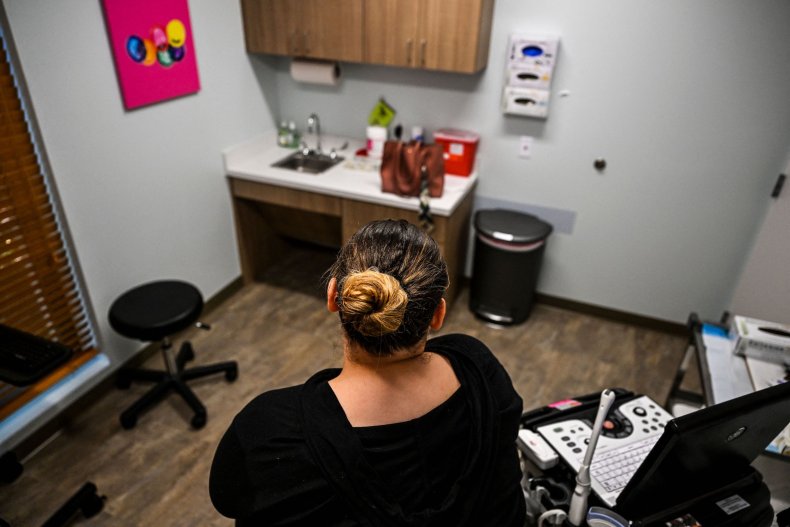"You won't hurt me this time, will you? Not do what you did last time?" In the controversial new Netflix film Blonde, that is the question that a realistic depiction of an unborn child asks her mother, Hollywood icon Marilyn Monroe, portrayed in the film by actress Ana De Armas. Blonde purports to tell the life story of Marilyn Monroe through vignettes of trauma, two of which are abortions she experiences and sincerely regrets.
It is not confirmed that the real-life Monroe actually experienced abortion, though she did suffer multiple miscarriages. But Blonde does authentically portray a reality that thousands of women face daily: abortion regret and the enduring effects that abortion trauma can have on the lives of women. Research shows that abortion can be physically, emotionally, and socially harmful to a woman in various ways throughout her life.
There are millions of women who, like the film version of Marilyn Monroe, are grieving the loss of children killed by abortion. They can't stay silent. It is far past time for women to speak up and end the silence around the long-term effects of abortion.
Abortion is an inherently invasive and violent procedure. As such, it has very real potential to cause lasting physical harm to mothers. Whether through a chemical abortion, a surgical abortion, or an induction abortion, major consequences can occur, sometimes even death. Other risks include hemorrhage, infection, and perforation of the uterus.
This physical damage incurred by abortion often manifests in subsequent pregnancies. Studies confirm a risk of pre-term birth or low birth weight of future babies after an abortion. The greater the number of abortions a woman has had, the greater the risk to her future children.
Abortion also appears to have a potential impact on future fertility, which even Planned Parenthood admitted on its consent forms. One Michigan abortion facility's consent form states: "In rare, but possible situations, permanent disability and/or permanent (hysterectomy) sterility may result."
In addition to abortion's physical risks, research has found that abortion is correlated with mental health struggles, including anxiety, depression, and substance abuse. Studies and meta-analyses point to a 45 to 81 percent increase in the risk of mental health pathologies among post-abortive women.

A significant percentage of post-abortive women experience post-traumatic stress disorder following their abortions. Symptoms can include nightmares, flashbacks, and panic attacks. Research also shows that post-abortive women can feel increased anxiety during later pregnancies or about their already-born children.
There is a demonstrated correlation between abortion and subsequent depression. Suicidal behavior is also more common among post-abortive women compared with those who give birth. Substance abuse among post-abortive women has also been studied extensively; one cross-sectional study found that post-abortive women experienced highly elevated rates of alcohol abuse, drug abuse and dependence, and substance use disorders generally.
Abortion also has consequences that can reverberate outward from the women who choose it, affecting their various relationships.
For men and women, the experience of an abortion in a previous relationship was related to negative outcomes in the current relationship. Among women, the experience of abortion within a current relationship was associated with an increased risk for various forms of sexual dysfunction (122 to 182 percent). "Men whose current partners had experienced an abortion were more likely to report jealousy (96 percent greater risk) and conflict about drugs (385 percent greater risk)," one study found.
Men are largely left out of the abortion conversation. But fathers have a critical influence both on preborn children's futures and on mothers' pregnancy-related decisions. Men experience abortion regret similar to that of women, although with varying symptoms. Like women, they grieve the loss of their child. They also feel shame for participating in the decision—either by failing to support the mother or by pressuring her into ending their child's life.
As the Marilyn character in Blonde illustrates, abortion not only ends the life of a child, but it hurts both mothers and families, too. Watching Blonde takes a viewer through a parade of dramatized, horrible events in Monroe's life, but the trauma which affects her character the most deeply stems from her two abortions. The abortion industry wants us to believe that choosing death is empowering, yet it is quite the opposite. As a mother, I know the true beauty of a child's life, and the paralyzing sadness of losing a child.
The research shows that women who choose that fate for their children often deeply regret their decisions, and feel physical and emotional consequences for years afterward. Rather than shouting their abortions, many women stay silent, enduring their fear and grief alone. Blonde shows us the visceral pain surrounding post-abortive trauma. Read the stories of real women who have overcome it at can't stay silent.
Lila Rose is founder and president of Live Action.
The views expressed in this article are the writer's own.
"lasting" - Google News
October 21, 2022 at 05:30PM
https://ift.tt/tlPmiCo
The Lasting Trauma of Abortion | Opinion - Newsweek
"lasting" - Google News
https://ift.tt/52tQNKa
Shoes Man Tutorial
Pos News Update
Meme Update
Korean Entertainment News
Japan News Update
Bagikan Berita Ini














0 Response to "The Lasting Trauma of Abortion | Opinion - Newsweek"
Post a Comment